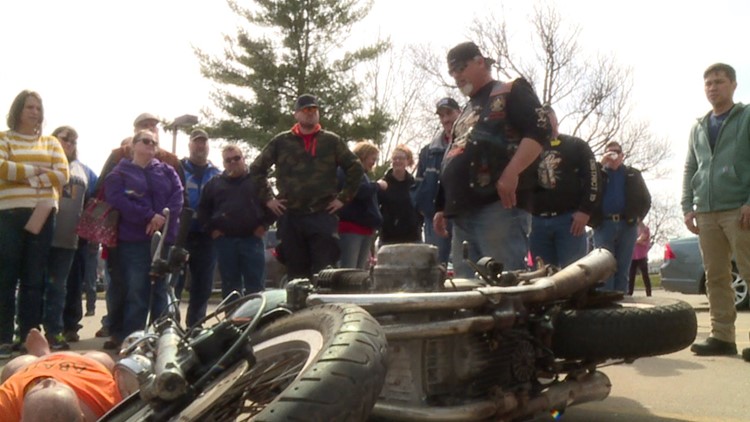DAVENPORT, Iowa -- Motorcycle rideres around the Quad Cities took advantage of the spring weather this weekend to hit the road. But some bikers chose to delay the long-awaited spring ritual for a very timely message.
On Saturday morning, bikers with District 15 of A.B.A.T.E of Iowa - A Brotherhood Aimed Towards Education - rode their bikes, motorcycles of different types and makes, to Genesis Medical Center, parking at a lot on the East Campus to set up a 'motorcycle lab.'
"We show various bikes and teach the first responders if they would come to motorcycle accident the mechanisms of a motorcycle," said Al Sly Schafer, assistant coordinator for the not-for-profit organization.
Drivers of other vehicles may not be attuned to sharing the road after the long winter, he said:
"Our main concern is we hope everyone looks out for bikers. It’s early in the season, people aren’t used to seeing motorcycles out this early."
Bikers raised money throughout the year to organize the annual Two Wheel Trauma class. For some emergency medical service providers, nurses, firefighters, doctors and chiropractors. it was their first opportunity to get a close up look at how these machines work.
Steve Day, emergency room nurse from Dubuque said even though he had many years of experience with motorcycle accident victims, he didn't know a whole lot about the machines, to get that first-hand experience.
"I thought I’d come down here to see what I can find out," he said.
Each bike's owner had a chance to explain the unique features of their bike, like where shut off the engine, how to lift up the bike, or to avoid hot spots like mufflers, educating first responders on ways to save valuable time in the field or at a trauma center.
Students learned how approach an accident scene that likely involves trauma.
Frank Prowant, one of the day's speakers and a deputy chief of the Ankeny Fire Department's EMS Division said there are very few programs that deal with motorcycle trauma.
"Over 52 percent of riders who are in an accident are gonna have severe injury or a fatality occur. And we want to try to reverse that trend," he said.



